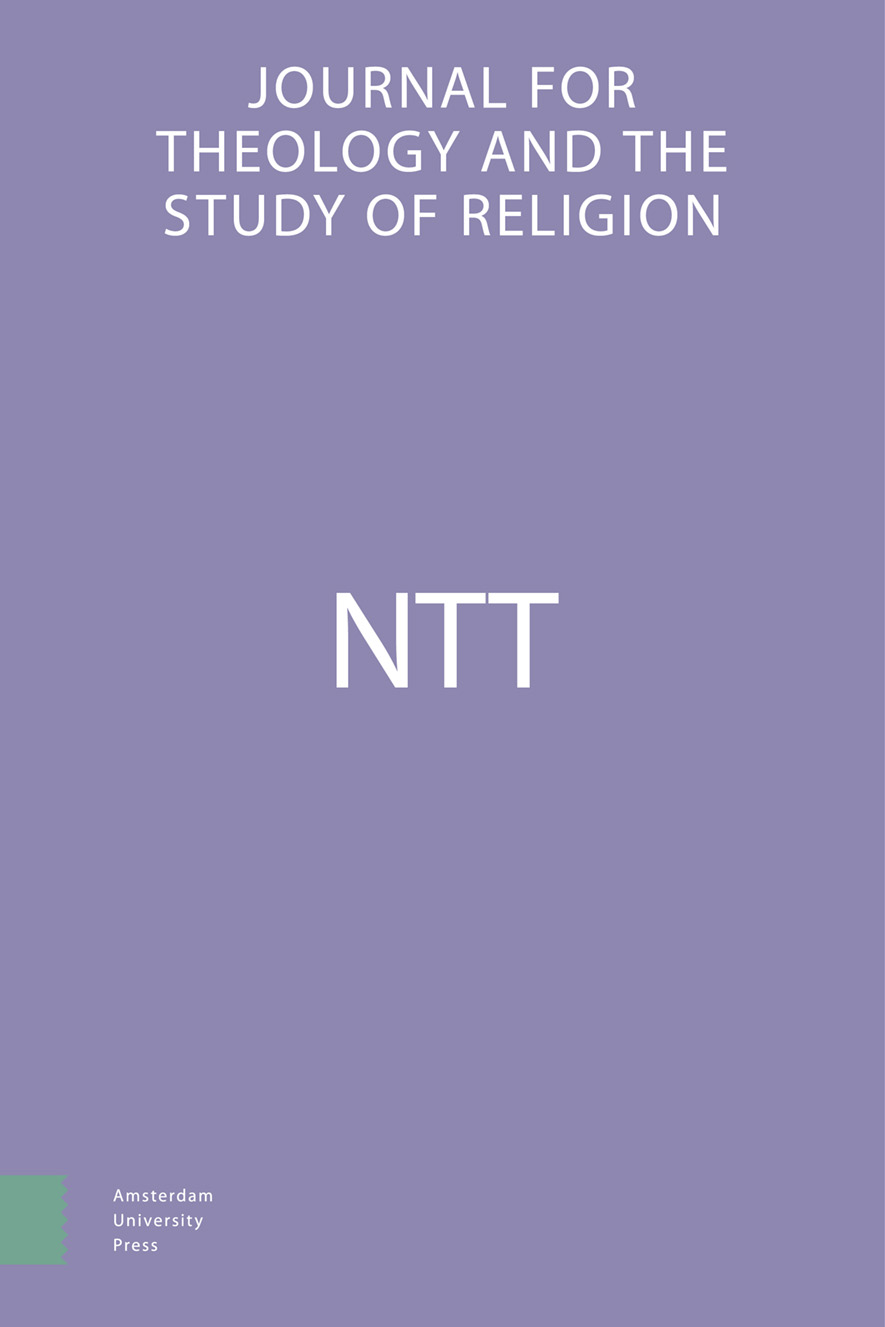- Home
- A-Z Publications
- NTT Journal for Theology and the Study of Religion
- Previous Issues
- Volume 38, Issue 4, 1984
NTT Journal for Theology and the Study of Religion - Volume 38, Issue 4, 1984
Volume 38, Issue 4, 1984
-
-
De kritiek op de Groot Nieuws Bijbel in het licht van de kritiek op eerdere Nederlandse bijbelvertalingen
More LessAuthor: C. HoutmanIn this article, criticisms of the Groot Nieuws Bijbel, the first ‘dynamic equivalent’ translation in Dutch of the complete Bible, are analysed in the light of criticisms of earlier Dutch translations. For the sake of the analysis, the problems of translation are discussed and a description of the demands which, in the author’s view, are required in order to produce an acceptable translation, is presented. With respect to the Groot Nieuws Bijbel, the author’s conclusion is that it cannot stand the test on many points on account of the editors’ failure to direct the project in an expert way and on account of the liberties the translators permitted themselves.
-
-
-
Waarom Grotius als oecumenisch theoloog mislukken moest
More LessAuthor: A.M. van PeskiHugo Grotius, 1583-1645, was highly gifted and widely renowned as an irenic theologian and Church politician. Why was he unsuccessful, indeed provoked only new polemics?
We seek the essential cause in the direction of his ecumenical thought. He ventured back to the era of unity before the schisms and plurality, i.e. essentially to the consensus quinquesaecularis.
We demonstrate in some detail how Grotius drifted away from the Arminian positions of his youth, insisting on the tradition of idealizing the pia antiquitas, to the neglect of undeniable realities. This no longer seems to be a practicable possibility.
-
-
-
Die Idee der Schöpfung im Werk Levinas’
*Neue Fassung eines Vortrags auf dem Levinas-Kolloquium in Löwen, 10-12 März 1983.
Sigla: AE – Autrement qu’être ou au-delà de l’essence, La Haye 1974.
AV – L’au-delà du verset, éd. de Minuit 1982.
DL – Difficile Liberté, éd. Albin Michel 1963.
EE – De l’existence à l’existant, éd. Fontaine, Paris 1947.
RO – La réalité et son ombre, in: Temps modernes, nov. 1948.
TI – Totalié et Infini. La Haye 1961.
More LessAuthor: H.J. HeeringAbstract‘Creation’ is a religious concept but Levinas uses it in his philosophy. According to him, God enters philosophy as her in-finition and her transcendance. Without Him, immanence is only ‘il y a’, the senseless event of nature, society and history. Creation is ‘il y a’ brought under the impact of transcendance by man. Man is chosen to bear creation’s evil by substituting himself for his neighbour’s (fr.:autrui) suffering and guilt, even if it costs his identity. – Here three questions arise: is there no ethics in joy, art and eros? Is man creation’s aim? Is creation only ‘material for his duty’? – L. Acknowledges man’s self-defence only in a secondary, derived sense: in society, where justice is to reign. Social, distributive justice has its roots in the infinite giving of personal ethics, but the two remain separate – So ethics is twofold, personal and social, never to influence one another?
-
-
-
De ‘Waarheidsvraag’ in de theologia religionum. Een godsdienst-wijsgerige benadering
More LessAuthor: E. SchrotenAbstractIs it possible to decide which religion is right in claiming the ‘Truth’? A distinction is made between three positions: 1) Exclusivism (‘extra ecclesiam nulla salus’); 2) universalism (the world religions are human responses to the same Divine revelation); 3) relativism (religions as ‘forms of life’, not justifiable by external criteria). Having criticised these positions, I argue that we should distinguish between metaphysical truth claims in an ‘existential’ and in a ‘philosophical’ sense. In the existential sense, in view of our basic convictions, we are exclusivists. In the philosophical sense, given the condition humaine, we are not able to decide which religion is right in claiming the ‘Truth’. This is a reason for modesty and, as such, a motive for tolerance.
-
Volumes & issues
-
Volume 79 (2025)
-
Volume 78 (2024)
-
Volume 77 (2023)
-
Volume 76 (2022)
-
Volume 75 (2021)
-
Volume 74 (2020)
-
Volume 73 (2019)
-
Volume 72 (2018)
-
Volume 71 (2017)
-
Volume 70 (2016)
-
Volume 69 (2015)
-
Volume 68 (2014)
-
Volume 67 (2013)
-
Volume 66 (2012)
-
Volume 65 (2011)
-
Volume 64 (2010)
-
Volume 63 (2009)
-
Volume 62 (2008)
-
Volume 61 (2007)
-
Volume 60 (2006)
-
Volume 59 (2005)
-
Volume 58 (2004)
-
Volume 57 (2003)
-
Volume 56 (2002)
-
Volume 55 (2001)
-
Volume 54 (2000)
-
Volume 53 (1999)
-
Volume 52 (1998)
-
Volume 51 (1997)
-
Volume 50 (1996)
-
Volume 49 (1995)
-
Volume 48 (1994)
-
Volume 47 (1993)
-
Volume 46 (1992)
-
Volume 45 (1991)
-
Volume 44 (1990)
-
Volume 43 (1989)
-
Volume 42 (1988)
-
Volume 41 (1987)
-
Volume 40 (1986)
-
Volume 39 (1985)
-
Volume 38 (1984)
-
Volume 37 (1983)
-
Volume 36 (1982)
-
Volume 35 (1981)
-
Volume 34 (1980)
Most Read This Month

Most Cited Most Cited RSS feed
-
-
How to read Philo
Author: D. T. Runia
-
- More Less

